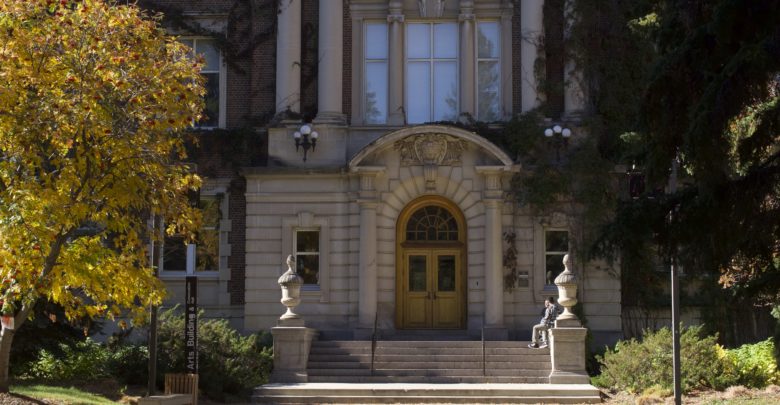 Emily Williams
Emily WilliamsFor most students, convocation is a time they look forward to — finally getting to celebrate all their hard work and walking away with their degree. But, for students whose preferred names differ from their legal names, this can be a time of high anxiety.
The University of Alberta does not make it easy to convocate under anything other than your given, legal name, often forcing students to convocate under names they no longer identify with.
For transgender and non-binary students, their legal names can often be deadnames. Deadnaming refers to the use of someone’s birth name after they have changed it to better represent their identity. As a result, they no longer go by their previous name(s).
Deadnaming a student can be a really traumatic experience, and potentially expose their identity to people who might not know they’re trans, putting their safety at risk. If the university wants to continue to protect the safety and wellbeing of its students, it needs to introduce better name change policies.
Using preferred names goes beyond just being a matter of safety — it’s a matter of respect. It’s about allowing students to freely express their identities, and giving them a space to exist without concern over their wellbeing. For something as fundamental to an identity as a name, students should not be having to fight tooth and nail for their right to express themselves.
Up until this year, students had to convocate under their official, legal names, as per the Parchment Procedure Policy. For the spring 2023 convocation and onwards, however, the university have changed their practice by allowing students to cross the stage under their preferred name.
This practice does not affect a student’s parchment. As it is a legal document, legal names are still required to be printed on the parchment.
The U of A now allows for a student’s reader card to not match the legal name used on their degree parchment. This is a huge step for U of A’s trans and non-binary students, as well as anyone else with preferred names. But, the university still has a ways to go when it comes to name policies.
The U of A already has questionable policies regarding name changes. For legal reasons, the university requires your legal name for official university or government documents, which makes sense. However, the university’s preferred name process states that the usage of either name is at the sole discretion of the university. This means that they “may use either your preferred first name or your legal first name” in reference to you, at any given time.
Though this is likely referring to communications through email, BearTracks, or other official means, this may result in professors having the ability to use someone’s deadname. This makes it easier for professors to forgo using preferred names, despite the university’s best efforts. Students don’t really have any policy protecting them from faculty using their deadname over their preferred name.
On top of this already lacking name change policy, the U of A does not have any policies regarding preferred last names. Students can update their preferred first names on BearTracks, and students who have legally changed their last name can do so through the Name Change Form.
However, students that choose to use a different last name have no way of communicating that change to the university. As a result, the U of A’s name change policy still excludes many students.
I prefer to use both my parents’ last names. Both of my parents are a part of my identity, and contributed to raising me — why should one get priority over the other? The U of A requiring me to use only my legal last name feels very invalidating. By only using my dad’s name, a large part of my life is being ignored. I should be allowed to have a say in how I’m referred, and other universities provide that choice.
The University of Calgary (U of C) name change policy covers not only preferred first names, but also last names for all non-official systems. As well, MacEwan University allows students to update both their preferred name and pronouns since 2017. However, MacEwan still requires students to use their legal name on their reader cards, much like the U of A has historically.
Students deserve the right to have their chosen name respected — whether that’s a preferred first name, last name, or any legal changes. There should not be this many hoops to jump through for students to gain that respect. This right should be protected by the university throughout a student’s academic career.
Being able to change the name on the reader cards is a step in the right direction. It’s inclusive and respectful of all genders within the university and shows that the U of A does care about the diverse identities of its students. But, if the U of A wants to continue on this path to inclusivity, they need to broaden policies to encompass more students in a wider variety of contexts. This could look like allowing preferred last names, creating policies to protect students from deadnaming, or adding pronoun options into BearTracks and eClass.
If the university wants to keep up with this kind of respect and compassion for its students, name change policies within the U of A need to keep evolving. Allowing students to convocate under their preferred names is a great step toward inclusivity, but it would be ignorant of the university to believe that this action is enough.




